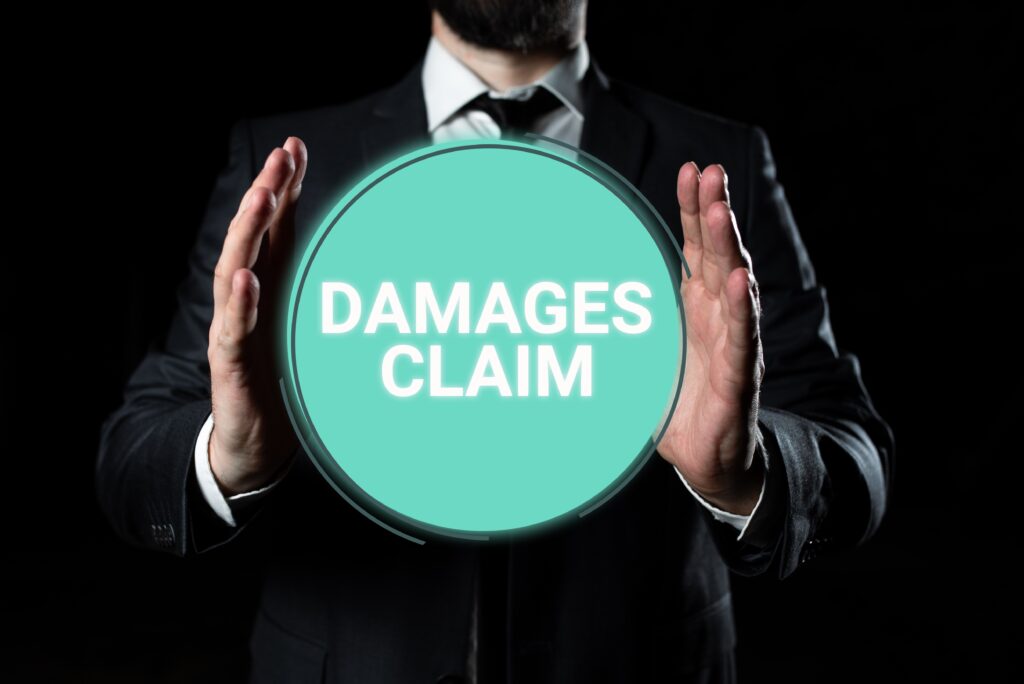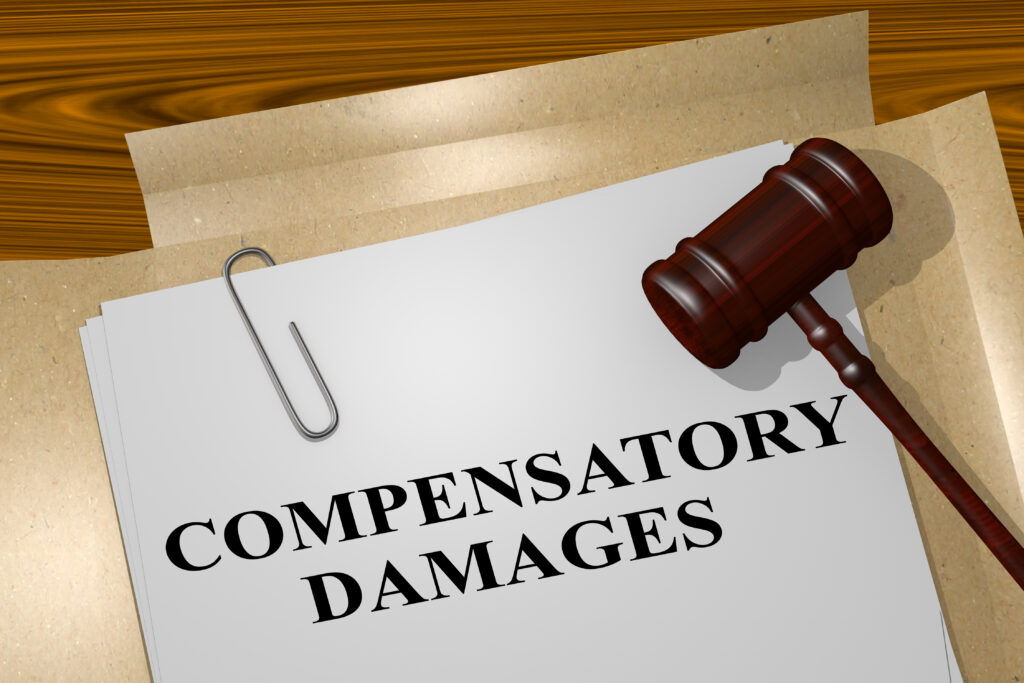Did you suffer an injury in an accident and do you need to know what damages you can sue for?
First, you must determine if you have a sincere need for a lawsuit. Most personal injury cases settle outside court by filing claims with liable insurers through personal attorneys.
Consult a Brownsville personal injury lawyer to discover if you have a valid claim or need for a lawsuit—either way, they will determine what damages you can recover after your accident.
Types of Damages

The damages you can recover through insurance claims or sue for in personal injury lawsuits are known as compensatory and punitive damages. Compensatory damages are common, while punitive damages apply to people whose acts demand further punishment.
Compensatory Damages
Compensatory damages are the most common damages associated with personal injury claims. They involve calculating your economic and non-economic damages.
These damages are known as:

- Special Damages: Special damages are economic or monetary damages you can sue for following personal injury. They are tangible losses that are documented by their paper trail. Special damages include healthcare costs, property damages, income losses, and vehicle repairs.
- General Damages: General damages are the non-economic or non-monetary damages you can sue for after an accident. They are intangible losses that are more challenging to prove. General damages include chronic pain, emotional distress, and permanent impairments.
There are no liability damages caps on economic damages, as they are proven losses. However, some states impose damage caps on non-economic and punitive damages. Check with a local personal injury attorney to understand damage caps in your state.
Punitive Damages
Punitive or exemplary damages are individual from compensatory damages and aren't typical in personal injury claims and lawsuits. The court awards them in particularly heinous circumstances that warrant punishment for the defendant due to their wantonly negligent or reckless actions. Punitive damages are rare, with only 3 to 5 percent of all verdicts resulting in them.
What Damages Can You Sue for With Personal Injury?
Now that you understand the types of damages involved in personal injury, compensatory damages are further broken down into subcategories.
Depending on the nature of your accident, severity of injuries, and length of treatment, you may seek medical, rehabilitation, disability, professional, property, and non-economic damages. Surviving families of victims of wrongful death can also recover damages after losing a loved one.
Medical Expenses
Injured parties should recover compensation for their medical bills when filing a personal injury accident claim. Depending on the severity of injuries and length of recovery, these costs can become astronomical quickly.
Common medical expenses include:
- Ambulance transport and EMT services
- Emergency room and hospital stays
- Primary evaluation and follow-up care
- Surgery and post-op
- Diagnostics and labs
- Prescription medications
- Medical devices
- Mental health care
It is unreasonable to expect an accident victim to absorb the costs of their injuries and medical bills from accidents that are not their fault. If you suffered an injury in an accident, consult a personal injury lawyer to recover these costs.
Rehabilitation Costs
Another substantial healthcare expense for injured parties is those associated with injury rehabilitation.
Depending on the nature of your injuries, typical rehab costs may involve:
- Physical therapy
- Neurological physical therapy
- Orthopedic therapy
- Chiropractor services
- Massage therapy
- Occupational therapy
- Speech and language therapy
- Vocational therapy
You can sue for rehabilitation damages along with other medical care expenses. Your personal injury attorney can consult with experts in these fields to establish the extent of these damages, including future rehabilitation care costs.
Disability Damages
Disability damages often include costs for medical treatment and those associated with mobility modifications. These can include home and vehicle mobility modifications to accommodate disability.
Examples of common disability damages warranting a need for compensation are:
- Amputation—compensation for the inability to perform daily responsibilities due to the loss of a limb, as well as the need for rehab and prosthetics.
- Paralysis—compensation for the loss of mobility and dependence on assistive devices.
- Brain Injury—compensation for impaired decision-making, memory issues, and cognitive difficulties resulting from traumatic brain injuries.
- Hearing Impairment—compensation for hearing impairment that makes it more challenging to communicate effectively.
- Vision Impairment—compensation for an injured party's reduced or lost vision, impacting employment and daily activities, like driving.
- Mental Health—compensation for psychological trauma and costs resulting from mental health care for conditions like anxiety, depression, and post-traumatic stress disorder (PTSD).
- Chronic Pain—compensation for ongoing pain that significantly affects your ability to perform daily tasks and work duties.
To prove disability damages, your attorney must provide medical documentation demonstrating the extent of your disability and how it affects your life. Compensation may include damages for future disability costs and lost earning capacity due to your disability. Expert testimony in disability cases makes it more viable to sue for these damages. Your personal injury lawyer will consult with experts relating to your case.
Professional Damages
Professional damages are the income losses sustained from missing work due to your accident and injuries. These can range from missing a few weeks to needing to train for a new job because injury severity prevents you from performing the duties of your employment at the time of the accident.
Professional damages may entail:
- Lost hourly income or annual salary
- Lost non-salary compensation for commission, tips, and bonuses
- Lost vacation time, sick leave, and paid time off (PTO)
- Lost job opportunities or progress toward promotions
- Lost benefits—healthcare, retirement, and pension
If your injuries result in disability, your attorney may factor in your diminished earning capacity to determine the full extent of professional damages. You can prove income losses with paystubs, tax returns, and employer income loss statements.
Property Damages
Accident victims can recover compensation for property damages incurred in their accident.
Depending on the accident type, you may collect compensation for property damages, including:
- Vehicle repairs or replacement
- Rental vehicle costs while your car is in the shop
- Car seats and safety booster seats
- Cellular phones and portable electronic devices
- Outdoor damages—mailbox, fence, gardens, homes, and buildings
Property damages can include anything that was damaged or destroyed in your accident. Vehicle-repair invoices, billing statements, and receipts prove these damages you can sue for.
Non-Economic Damages
Non-economic or general damages are often referred to as pain and suffering.
Depending on the circumstances of your cases, non-economic damages your attorney may recover include:
- Acute and chronic pain conditions
- Emotional distress
- Loss of enjoyment of life
- Sleep disturbances
- Physical impairment
- Loss of society and companionship
Non-economic damages lack the paper trail evidence. However, medical records and a post-accident injury journal will help establish them.
Wrongful Death Damages
Families experiencing the loss of a loved one due to the negligent or intentional act of another have rights, too.
The damages you may recover in a wrongful death claim are:
- Funeral and burial or cremation costs
- Final medical expenses of the decedent
- Loss of consortium (companionship, intimacy)
- Loss of household services
- Loss of financial support
- Loss of parental guidance
Consult a Personal Injury Lawyer

Consult a personal injury lawyer to discuss your case. You'll want to determine legal recourse for recovering damages you can sue for in your claim.